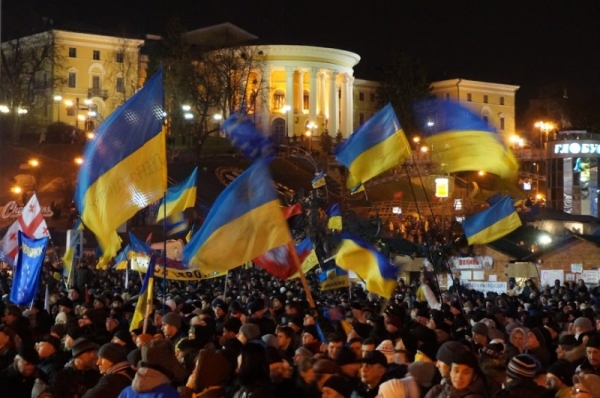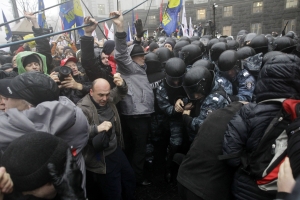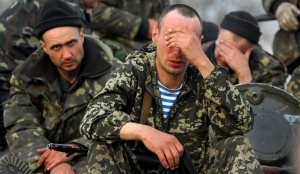Magdalena Styrnik
Exactly February 21 this year, I received the following message on Facebook from my Ukrainian peer and law student as well, Yana: “They are killing us.” with some web link below. The link referred to the website including the petition which goal was to boycott the closing ceremony of Sochi Olympic Games. I have clicked, as a sign of my support for that idea. That was not so much, that was nothing, I would say, to help Ukrainians at that moment, however, WHAT ELSE could I do then for them all by myself?
They are (were) at our age
I checked mentioned website recently, which is almost nine months from the day of a message, 3 327 people “clicked” the petition just like me. Was the ceremony boycotted? I do not think many people focused on that in February. Especially, young people, high school and university students in their 20s, at the very beginning of their life, knowing that their peers and neighbours were being killed in Kiev by Ukrainian officials just because they wanted to live in democratic country.
There were many coverages showing the situation at the Euromajdan, as media called the gathering of people at the Independence Square in Kiev. What I saw in these reports was a scream, bullets, a fire and smoke, but also A HOPE, a lot of hope.
This people believed that something (or even everything) may change in their country. They were ready to sacrifice their life for freedom, democracy and better life closer to European Union. All of the above had its price. The most valuable was the life of almost 800 people as medical volunteer service claimed in April, while Ukrainian officials said, that time, it was about 100 people. Was that worth it? Was that the end? We all know it was not. Although in February there were some changes among Ukrainian officials, it was just the beginning of a long journey.
The Independence Square became a ruin, citizens became victims, the protest became a war, the Crimea became Russian territory.
To die a hero
My father is a salesman in car parts company. As Lublin is located in the East of Poland, what is more, not so far from the border, many Ukrainians come here to buy those car parts, as they are cheaper and of better quality than in Ukraine. One of my father’s regular clients is about 30 years old man. In June 2014 he came to the company as usual. When my father asked him about the situation in Ukraine, the man said: “ A few months ago I’ve collected my friends from military training area after a war game. There were TWELVE of them. Now, there are SIX.„
The rest six of my father’s client friends obviously died during military operations. I am just wondering whether they- being people in their 30s, at the beginning of their adults life- really wanted to fight for their homeland or they just had no other choice. Each of these was possible, however, common knowledge is that even 50 years old men receives a call-up and actually MUST leave their families, work, homes. That’s how war works- someone may say- I cannot deny it- the death of billion of people is only the statistics, the death of one man is a tragedy. What always strikes me the most when it comes to war, is that every single soldier is someone’s father, husband, son or brother- regardless of nationality or political beliefs.
On the other side, nowadays, vast majority of modern countries, have their professional armies that consist of educated, well-paid soldiers, who are aware of risk and danger. However, in such cases, I ask myself one more question: are these men, whose profession is being a soldier, still a hero or do they just do their jobs?
It is not my aim to compare the value of life of Euromajdan’s victims with the value of life of soldiers. However, I would like to focus the attention on the absurdity of such conflicts. People die, because one man or a group of other people want to have more influence on specific territory or resources. The war ends some day and I am asking one more question: WHAT NOW?
Two real stories I’ve described above should show us how close Ukraine and its problems are to Poland, Poles and every single man, who loves its country.



